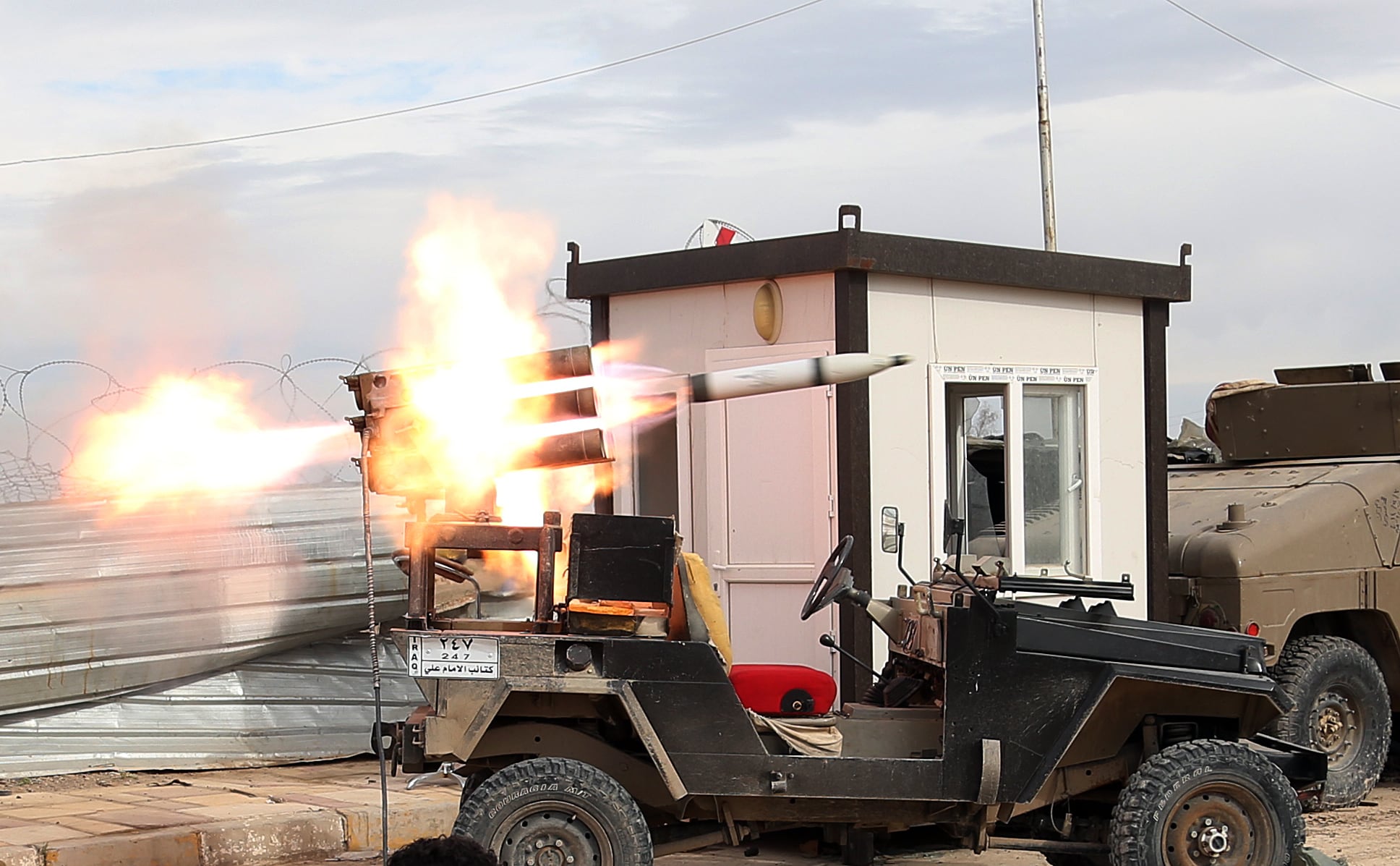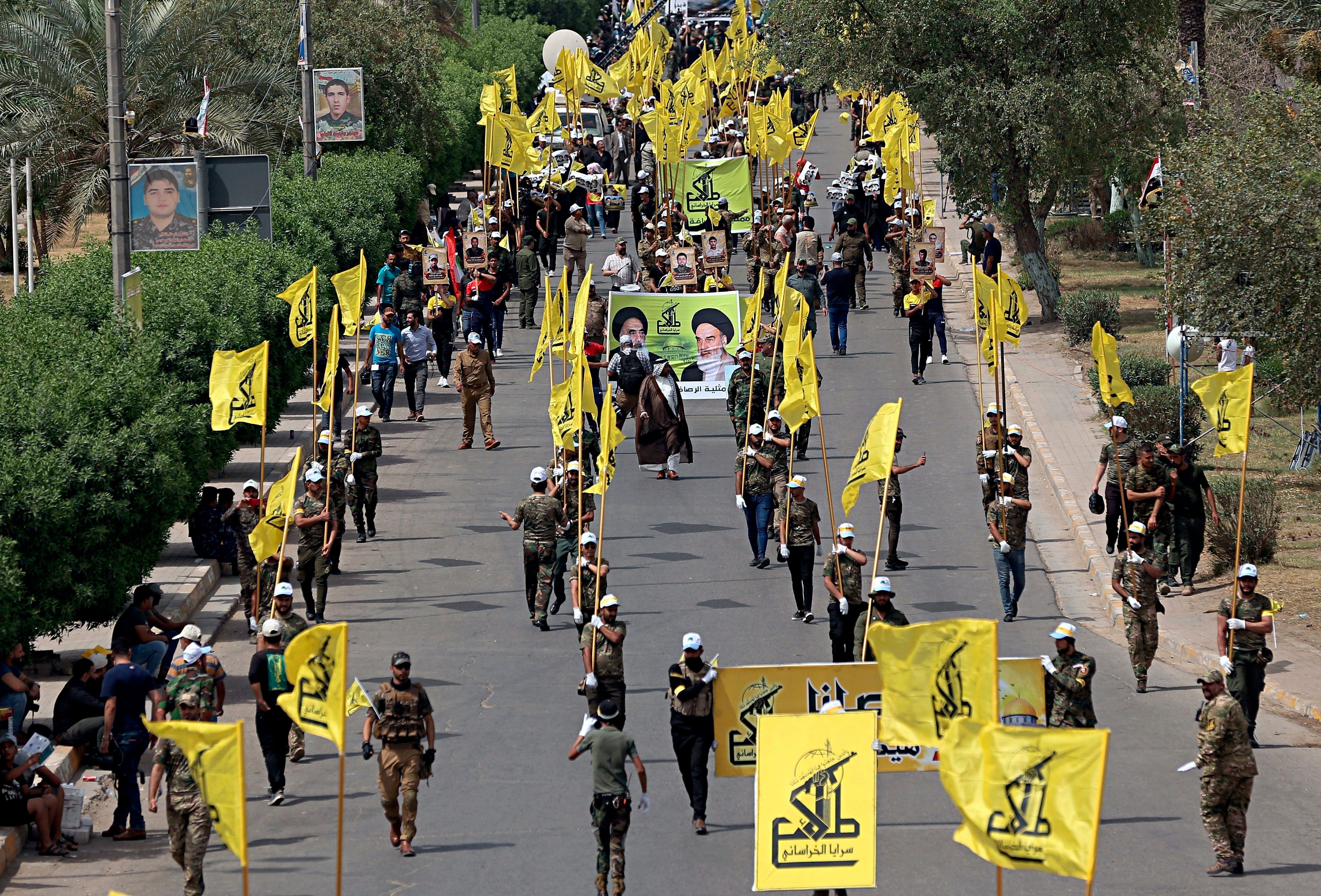An Iran-backed militia may be responsible for an attack on an Iraqi military base in Kirkuk that wounded several American troops and killed a U.S. contractor Friday evening, a U.S. source on the base told Military Times.
And Republican Sen. Tom Cotton warned Tehran in a tweet Saturday morning following the Kirkuk attack.
“If American blood was shed by an Iran-backed group, Tehran ought to face swift and severe consequences," Cotton tweeted.
Nearly 30 rockets slammed the Kirkuk base on Friday evening striking an armory housing weapons and explosives, the source detailed.
The American source, who spoke to Military Times on condition of anonymity because he was not authorized to speak on the record, said the truck that had fired the 107 mm rockets had been recovered.
There were 36 tubes for launching the rockets on the vehicle, all had been fired except for four rounds, the source explained.
Officials with the U.S.-led mission to defeat ISIS, said in a statement Friday evening that several U.S. troops were wounded and an American contractor was killed in the attack. The U.S. source at the Kirkuk base told Military Times that four American troops were wounded in the attack.
The current status of the American troops is unknown, Military Times has reached out to Operation Inherent Resolve and has yet to receive a response. The Wall Street Journal reported that the American service members were not seriously injured.
RELATED

A photo and video shared with Military Times showed the armory at Kirkuk as nearly completely destroyed. The armory carried nearly everything, a source said. “You name it, it was in it. Ammo, secondary explosives and weapons were in it,” the source said.
In the video, ammunition and secondary explosives can be heard cooking off in a fire that engulfed the building shortly after the rocket attack. The sources has asked Military Times not to share the video or image of the armory due to potential operational security concerns.
“We think the attack was carried out by ... Popular Mobilization Forces,” the source told Military Times.
PMFs are an Iraq government sponsored web of militias, most of them Shia groups, that were formed as ISIS sacked Mosul and rampaged the country in 2014. Many PMF groups are believed to have Iranian backing.
The Wall Street Journal reported that the U.S. has not assigned blame for the Kirkuk attack, but military officials are looking at an Iran-backed group known as Kataib Hezbollah.
Kataib Hezbollah is also believed to be behind a 122 mm rocket attack on the al-Asad base on Dec. 3, a U.S. official told Military Times.
The December attack on al-Asad was notable, the official said, in that the attackers used a 122 mm rocket, which is deadlier and boasts a longer range than the 107 mm rockets that have been used in previous attacks.
While al-Asad is located in Anbar province, Iraq, Kataib Hezbollah has an extensive network across the volatile province, according to Phillip Smyth, a research fellow for the Washington Institute and Iran expert.
The Shia militant group has been known to operate in al-Qaim, Abu Kamal and along Route 1 that runs through Anbar province, Smyth told Military Times.
Iraq has struggled to rollback the Iranian aligned PMFs and fold them under the Iraqi government’s supervision. In July, Iraqi Prime Minster Adel Abd al Mahdi issued an order to fold and integrate all PMFs into the Iraqi security forces.
RELATED

According to the Defense Intelligence Agency, some PMF brigades shut down and turned in their weapons, but others have defied the order, an inspector general report detailed.
The DIA also said in the IG report that “Iranian-affiliated groups within the PMF are unlikely to change their loyalties because of the new order.”
U.S. officials believe Iranian-backed militias are behind a recent spate of rocket attacks that have targeted U.S. bases and interests in Iraq over the last couple months.
Friday’s attack on Kirkuk is at least the 11th rocket attack targeting an outpost housing American forces in the last two months.
U.S. officials have warned Iran and its proxies to halt rocket attacks in the country. In mid-December Secretary of Defense Mark Esper phoned Mahdi and asked for help to stop the rocket attacks.
Secretary of State Mike Pompeo warned Iran and its leaders in December of a “decisive U.S. response” if the regime or its militias harm American troops or allies in the region.
Shawn Snow is the senior reporter for Marine Corps Times and a Marine Corps veteran.




